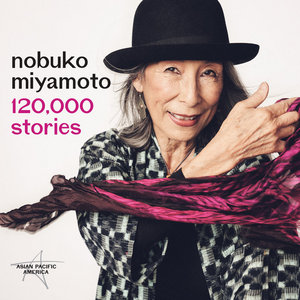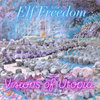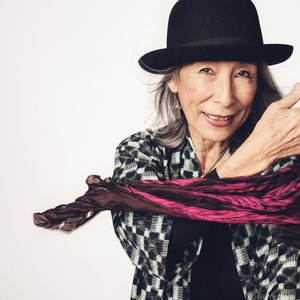120,000 Stories by Nobuko Miyamoto
Tracklist
| 1. | We Are the Children | 4:18 |
| 2. | Not Yo' Butterfly | 4:21 |
| 3. | Gaman | 6:29 |
| 4. | Tampopo (Dandelion) | 6:11 |
| 5. | Somos Asiáticos | 5:28 |
| 6. | Ichigo Ichie | 4:36 |
| 7. | What Is the Color of Love? | 7:29 |
| 8. | 120,000 Stories | 5:06 |
| 9. | Meditation on a Lotus | 8:33 |
| 10. | Black Lives Matter | 6:02 |
| 11. | What Time Is It on the Clock of the World? | 3:53 |
| 12. | To All Relations / Tala‘a 'l-badru ‘alaynā | 3:07 |
| 13. | Yellow Pearl | 3:04 |
| 14. | Free the Land | 3:38 |
| 15. | West to East | 5:06 |
| 16. | Beckoning | 3:34 |
| 17. | American Made | 5:14 |
| 18. | English Lesson | 6:24 |
| 19. | Pilipino Tango | 7:26 |
| 20. | To All Relations (Mitakuye Oyasin) | 6:27 |
| 21. | Fortunata | 6:34 |
| 22. | Yuiyo Bon Odori | 3:51 |
| 23. | Mottainai | 3:41 |
| 24. | Cycles of Change | 4:31 |
| 25. | Bam Butsu, No Tsunagari (10,000 Things, All Connected) | 6:29 |
Credits
released January 29, 2021
Produced by Derek Nakamoto & Quetzal Flores
Disc 1: recorded, mixed, and mastered in 2020 by Chris Sorem at The Nest Studio, Los Angeles, CA. Additional recording: Tropico Union, Los Angeles, CA, and Stagg Street Studio, Van Nuys, CA, by Glenn Suravech; NMG Studio, Gardena, CA; Artivist Entertainment Studios, Los Angeles, CA; and Bright Music Studios, Castle Rock, CO
Additional mastering by Ruairi O’Flaherty for Echo Mastering
Disc 2: tracks 1 & 2 recorded in 1973 by Jonathan Thayer at A-1 Sound in New York, NY; tracks 3 & 4 recorded in 1977 by David Hines at Cherokee Studios in Hollywood, CA; track 5 recorded in 1983 by Craig Burbidge at Nakamoto Music Group, Inc. in Los Angeles, CA; tracks 6 & 7 recorded in 1983 by Craig Burbidge and Derek Nakamoto at Spindle Top Studio, Los Angeles, CA; tracks 8 & 9 recorded in 1997 by Derek Nakamoto at Bindu Studio, Santa Monica, CA; track 10 recorded in 1984 by Glen Nishida at Pacifica Recording Studios in Los Angeles, CA; track 11 FandangObon 2015: (L to R) Adriana Delfin, Columba B. Maldonado, E. M. Abdulmumin, Nobuko Miyamoto, and Martha González. Photo by Mike Muraserecorded in 2011 by Derek Nakamoto and Glenn Suravech at Suburban Soul in Torrance, CA, NMG Studio in Los Angeles, CA, and Konscious Studio in Santa Monica, CA; tracks 12 & 13 recorded in 2012 and 2013, respectively, by Quetzal Flores at Artivist Entertainment Studios in Los Angeles, CA.
Additional mastering by Denny Fongheiser for Sonic Bliss Productions
Annotated by Nobuko Miyamoto
Album cover photographs by Michael Becker
Gerald Albright appears courtesy of Bright Music Records
Smithsonian Folkways executive producers: Huib Schippers and John Smith
Production managers: Sojin Kim, Logan Clark, and Mary Monseur
Editorial assistance by Carla Borden
Art direction, design, and layout by Visual Dialogue
Thank you!
This project came into being under the guidance of two superb musicians and beautiful human beings: producers Derek Nakamoto and Quetzal Flores, who gave me the loving support to create this, my first solo album in 20 years. A special thanks for the time and care that Derek put into the arrangements to take these songs beyond my living room piano to share with you. It was a joy for this ol’ gal to step into the recording studio with such brilliant musicians, my homegirl singers, and guest artists who so generously shared their magic to bring these songs into their fullness. My gratitude also goes to Sojin Kim and Deborah Wong, two selfless genies who, behind the scenes, caringly nudged this project into fruition. I would like to acknowledge Barbara Dane of Paredon Records, who recognized early the importance of Asian Americans having our own song. Recording the album A Grain of Sand preserved our music as part of our collective memory. Collaborations with artists like Dan Kwong and others in my Great Leap family and beyond have kept more songs coming. Being a “community artist” has given me the privilege of working with many communities of color and their struggles—students, immigrants, environmentalists, gardeners—expanding my world, my work, my songs. I’m grateful to the Japanese American Cultural & Community Center, who gives us space to grow projects like FandangObon, bringing together Latinx, Black, and Muslim communities, opening endless possibilities. Mentors Yuri Kochiyama, Grace Lee Boggs, and Rev. Mas Kodani continue to be inspirations in my work. And finally, to my own family, my husband / partner / teacher Tarabu, my son Kamau and his wife Malika, and my four grandchildren. I sing for you.
Produced by Derek Nakamoto & Quetzal Flores
Disc 1: recorded, mixed, and mastered in 2020 by Chris Sorem at The Nest Studio, Los Angeles, CA. Additional recording: Tropico Union, Los Angeles, CA, and Stagg Street Studio, Van Nuys, CA, by Glenn Suravech; NMG Studio, Gardena, CA; Artivist Entertainment Studios, Los Angeles, CA; and Bright Music Studios, Castle Rock, CO
Additional mastering by Ruairi O’Flaherty for Echo Mastering
Disc 2: tracks 1 & 2 recorded in 1973 by Jonathan Thayer at A-1 Sound in New York, NY; tracks 3 & 4 recorded in 1977 by David Hines at Cherokee Studios in Hollywood, CA; track 5 recorded in 1983 by Craig Burbidge at Nakamoto Music Group, Inc. in Los Angeles, CA; tracks 6 & 7 recorded in 1983 by Craig Burbidge and Derek Nakamoto at Spindle Top Studio, Los Angeles, CA; tracks 8 & 9 recorded in 1997 by Derek Nakamoto at Bindu Studio, Santa Monica, CA; track 10 recorded in 1984 by Glen Nishida at Pacifica Recording Studios in Los Angeles, CA; track 11 FandangObon 2015: (L to R) Adriana Delfin, Columba B. Maldonado, E. M. Abdulmumin, Nobuko Miyamoto, and Martha González. Photo by Mike Muraserecorded in 2011 by Derek Nakamoto and Glenn Suravech at Suburban Soul in Torrance, CA, NMG Studio in Los Angeles, CA, and Konscious Studio in Santa Monica, CA; tracks 12 & 13 recorded in 2012 and 2013, respectively, by Quetzal Flores at Artivist Entertainment Studios in Los Angeles, CA.
Additional mastering by Denny Fongheiser for Sonic Bliss Productions
Annotated by Nobuko Miyamoto
Album cover photographs by Michael Becker
Gerald Albright appears courtesy of Bright Music Records
Smithsonian Folkways executive producers: Huib Schippers and John Smith
Production managers: Sojin Kim, Logan Clark, and Mary Monseur
Editorial assistance by Carla Borden
Art direction, design, and layout by Visual Dialogue
Thank you!
This project came into being under the guidance of two superb musicians and beautiful human beings: producers Derek Nakamoto and Quetzal Flores, who gave me the loving support to create this, my first solo album in 20 years. A special thanks for the time and care that Derek put into the arrangements to take these songs beyond my living room piano to share with you. It was a joy for this ol’ gal to step into the recording studio with such brilliant musicians, my homegirl singers, and guest artists who so generously shared their magic to bring these songs into their fullness. My gratitude also goes to Sojin Kim and Deborah Wong, two selfless genies who, behind the scenes, caringly nudged this project into fruition. I would like to acknowledge Barbara Dane of Paredon Records, who recognized early the importance of Asian Americans having our own song. Recording the album A Grain of Sand preserved our music as part of our collective memory. Collaborations with artists like Dan Kwong and others in my Great Leap family and beyond have kept more songs coming. Being a “community artist” has given me the privilege of working with many communities of color and their struggles—students, immigrants, environmentalists, gardeners—expanding my world, my work, my songs. I’m grateful to the Japanese American Cultural & Community Center, who gives us space to grow projects like FandangObon, bringing together Latinx, Black, and Muslim communities, opening endless possibilities. Mentors Yuri Kochiyama, Grace Lee Boggs, and Rev. Mas Kodani continue to be inspirations in my work. And finally, to my own family, my husband / partner / teacher Tarabu, my son Kamau and his wife Malika, and my four grandchildren. I sing for you.








